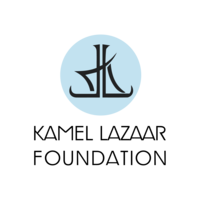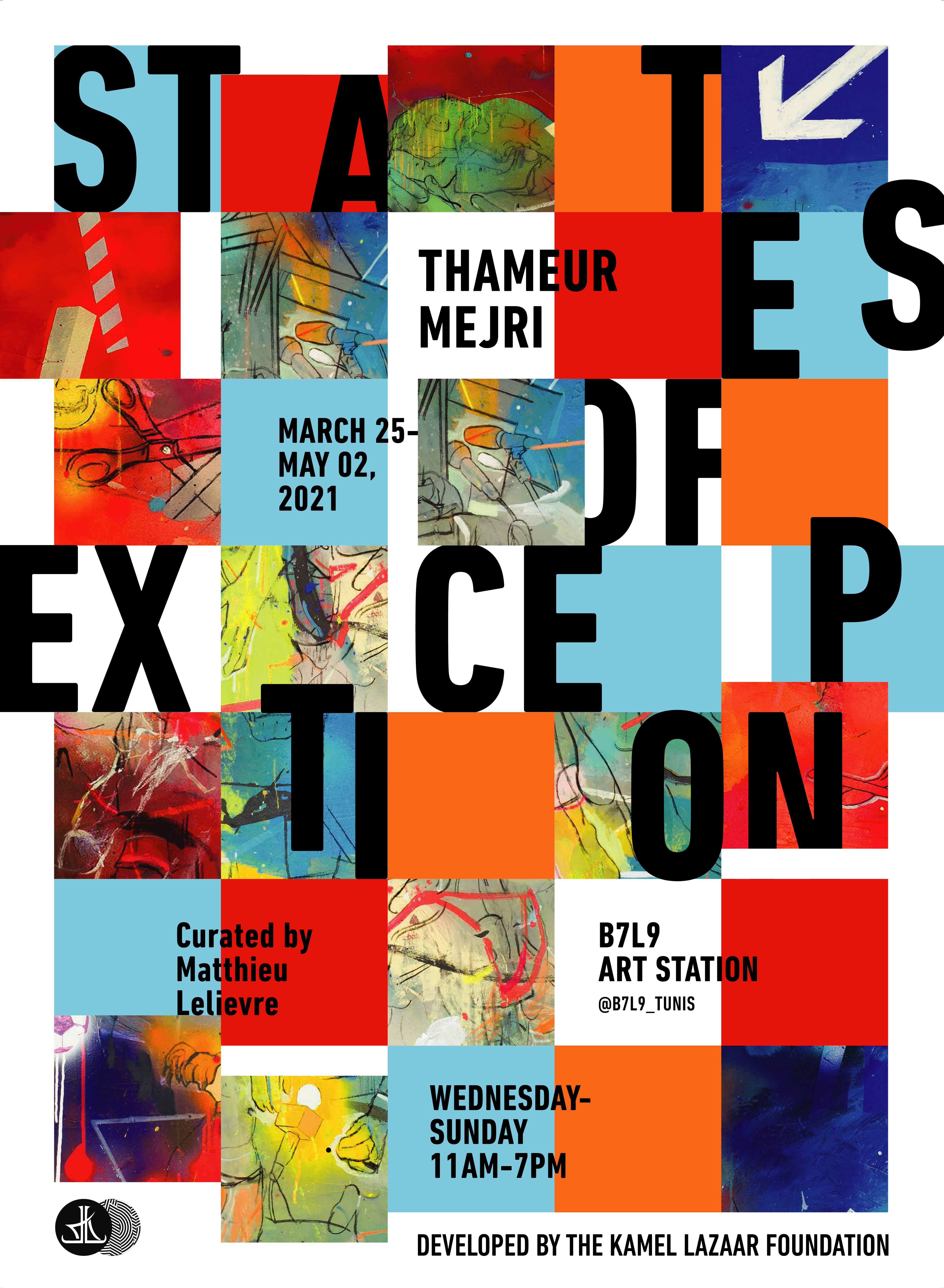For his first solo exhibition in a Tunisian institution, Thameur Mejri has chosen to explore the nature of power in the democratic context. By choosing the title States of Exception, which can also be translated as "states of siege", drawn from the philosopher Giorgio Agamben, the artist hints at a broader reflection on the nature and use of power in the democratic context, and questions the legitimacy of the state’s use of power. The state of exception is an extraordinary and temporary space and time in which the democratic process and the rights of individuals are suspended, "a no man's land between public law and political fact, between public law and political affairs, between the juridical system and life”. If this space does not exist clearly within and outside the law, democ- racy paradoxically withdraws for its own sake, which represents a danger that has been illustrated so many times in certain authoritarian and dictatorial drifts of power. The right to rebel against the power in place is situated in a similar legal limbo.
Thameur Mejri (b.1982), lives and works in Nabeul, Tunisia, and teaches painting at the Fine Arts Institute of Tunis. Consisting of recent works and presenting an installation of three large canvases made on site, at B7L9, States of Exception is an imaginative dive into the world of the artist. By bringing together painting, drawing and installation, this proposal deconstructs the very concept of the exhibition with the desire to question the role of the artist in society and attempts, following Michel Foucault, to "promote new forms of subjectivity" in order to “rid ourselves of the political 'double bind' of individualizations and the simultaneous totalization of modern power structures”.
The exhibition focuses on the practice of painting as production, object, and function, and unfolds in three distinct and permeable sections. Visitors first enter a deconstructed space, composed of three large works created on-site at B7L9, in acrylic and charcoal on sailboat canvases. Moving beyond the framed canvas in his recent artistic research, Thameur Mejri began to explore other formats and materials. These large canvases allow his gesture and his artistic vocabulary to mea- sure up to the dimensions of architecture, and even adopt the codes of installation.
The second section presents a classical hanging that recreates the conditions of the white cube and tests the impact of the political pretensions of painting that are often reduced to its decorative and commercial character. A low hanging allows viewers to immerse themselves in these tense composi- tions, while appreciating an artistic practice that relies on a dialectic in search of a balance between the power of colour and the precision of drawing.
The third space is conceived as the eye of the hurricane and allegorically recreates the artist's studio. By entering this zone of research, exploration and experimentation, where influences and ideas intersect, the viewer can dive into the process of reflection and the formation of gesture. Drawing, video and movement are revealed as the supporting elements of this abundant thought that are laid bare.
The exhibition States of Exception focuses on painting, a historical and fundamental artistic medium in the history of art, particularly in Tunisia, while constituting a composite and polymorphic space of expression and action in which the bodies of visitors engage both physically and mentally. Together, they deconstruct the nature of violence and resistance within and outside the law. The artist’s work draws on the pictorial tradition of emotion through the use of colour applied in large, flat areas. From these coloured forms emerge anodyne, everyday, sometimes disturbing objects, all put in tension in complex and dense compositions. These constellations seem to take the form of a rebus, which compose as many universes to be decoded as there are spectators to appropriate their meanings. Fragments of bodies in tension, insignificant objects – sometimes threatening – camer- as, symbols of authority and consumerism, appear as weapons, which, combined, seem to be able to denounce, attack or defend. With these elements and sym- bols, gathered in the form of metaphors and subconscious signals, the artist seeks to describe certain tensions symptomatic of contemporary societies where authority, combined with power, are compromised in order to impose a state of emergency in which the individual lives in permanent submission. Political and health crises create extraordinary conditions on the scale of the whole of humanity, to which certain politicians respond by decreeing "states of emergency", a legal mecha- nism that suspends individual liberties in particular. We are currently seeing this on a global scale with the pandemic to which governments are responding by imposing curfews and confinements, reinforcing borders, conditioning mobility and reducing freedoms, in fact if not in law. This democ- racy without democracy can lead to critical conditions where the collective space is progressively reduced, and the law escapes the citizens. What characterizes the relations between violence and rights? Can art claim to be political? What role can the artist play in the process of defending democracy? These historical questions are well inscribed in the actuality of Tunisia as in the majority of countries throughout the world, without sparing those which one imagines, wrongly, as robust democracies. Thameur Mejri's critical work on the nature of power and forms of government seems more relevant than ever in order to understand how each of us can and should feel involved, through awareness, information and education, in the preservation of our individual and collective freedoms.

